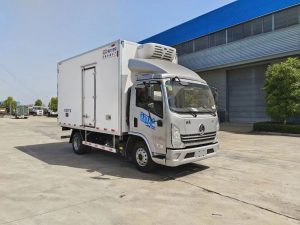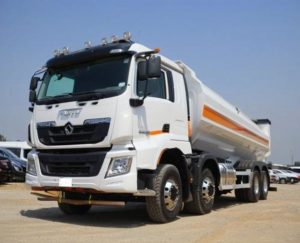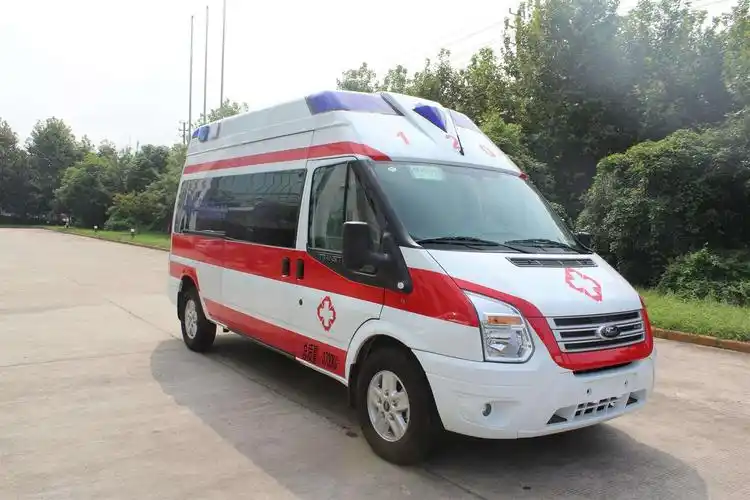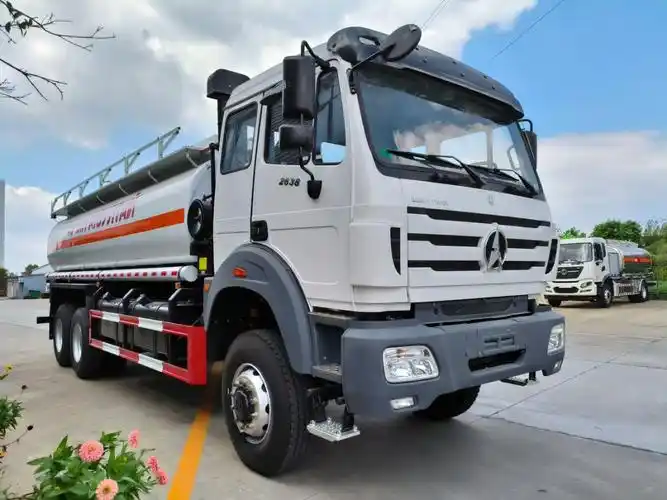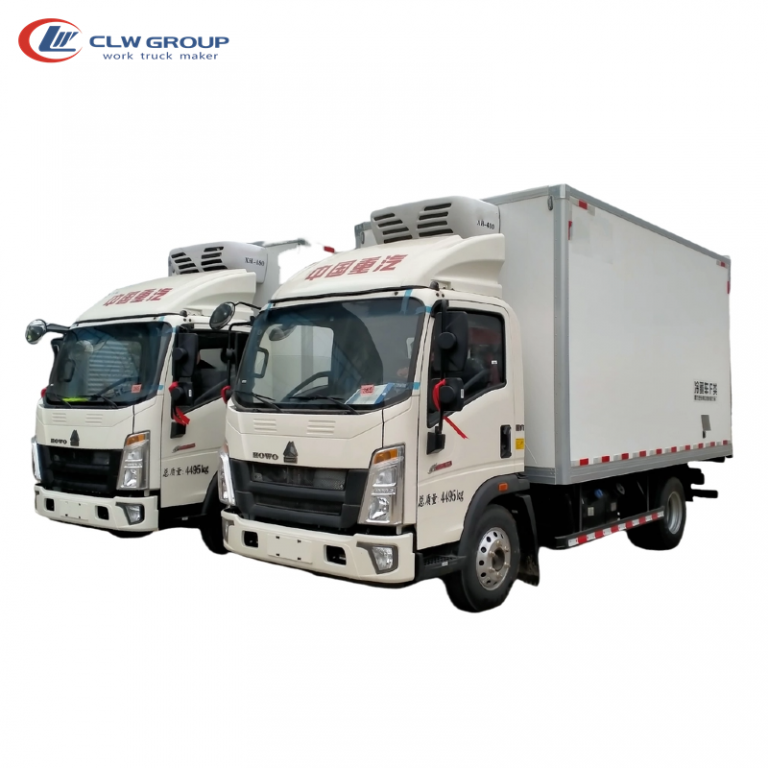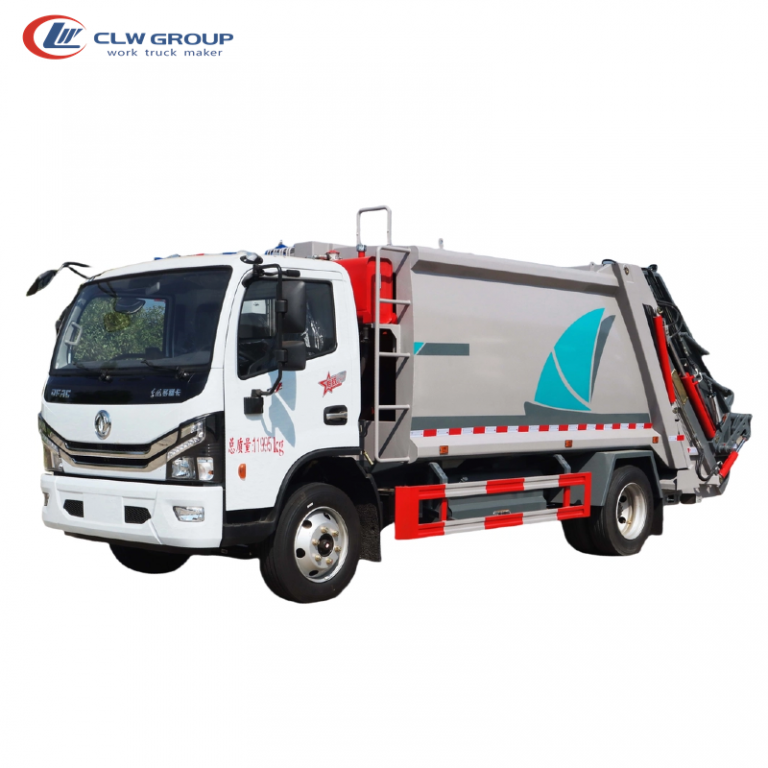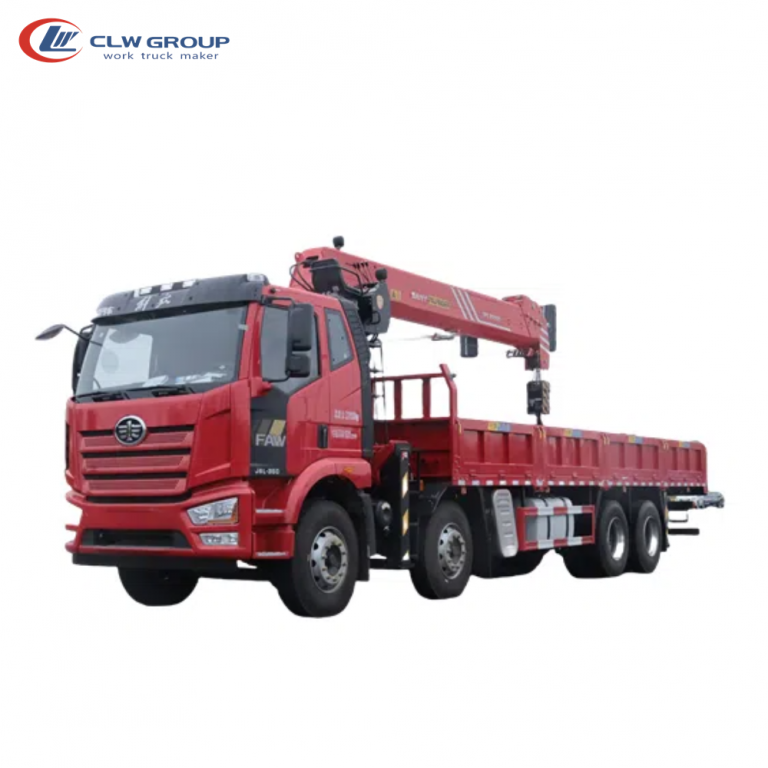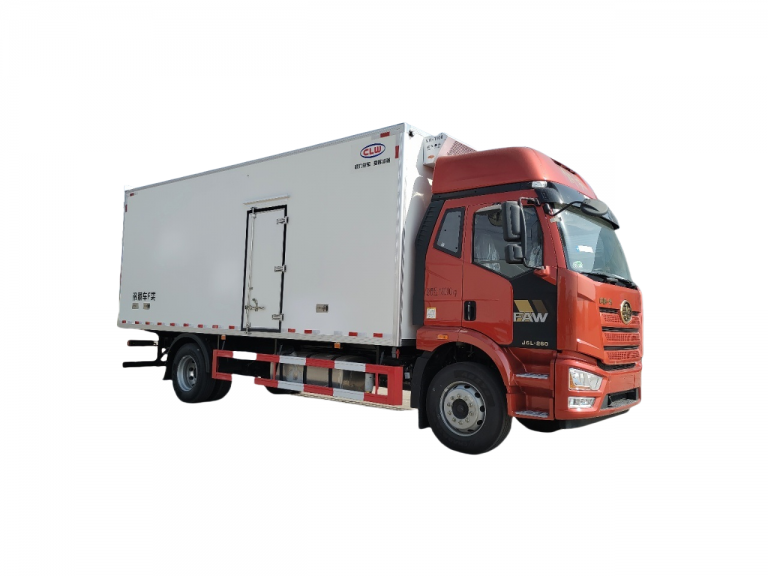Table of Contents
Toggle
Introduction
Let’s take a ride into the world of van trucks, those versatile workhorses that have become essential in various industries. Whether you’re moving goods, people, or running a mobile business, van trucks have got you covered. They’re like the Swiss Army knives of the automotive world, providing solutions to a myriad of needs with their adaptability and efficiency. But what exactly makes these vehicles so special, and how did they come to be such an integral part of our daily lives? Buckle up as we delve into the fascinating world of van trucks!
Van trucks are a unique category of vehicles that combine the best elements of trucks and vans. They offer the spacious cargo capacity of a truck while maintaining the maneuverability and comfort of a van. This combination makes them incredibly versatile, capable of handling a wide range of tasks from commercial deliveries to personal adventures. Imagine needing to transport a large number of goods through busy city streets; a traditional truck might be too cumbersome, but a van truck fits the bill perfectly.
In this comprehensive guide, we’ll explore the rich history of van trucks, examine the different types available, highlight their key features, and discuss their various applications across industries. We’ll also look at popular brands and models, delve into customization options, and weigh the pros and cons of buying versus leasing. By the end of this article, you’ll have a thorough understanding of why van trucks are such valuable assets and how they can meet your specific needs.
History of Van Trucks
The journey of van trucks is quite fascinating. It all started in the early 20th century when the need for a vehicle that could carry more than just passengers became apparent. Early automobiles were primarily designed for personal transportation, but as businesses grew and cities expanded, there was a clear demand for vehicles capable of hauling goods efficiently. This led to the creation of the first commercial vans, which were essentially modified passenger cars with larger cargo areas.
Early Beginnings
In the 1910s and 1920s, companies like Ford and General Motors began experimenting with commercial vehicles. The Ford Model T, for instance, was adapted into a delivery van by adding an enclosed cargo area to the rear. These early vans were rudimentary by today’s standards, but they laid the groundwork for future developments. They featured simple designs with basic engines and limited safety features, yet they were revolutionary in their ability to transport goods over long distances.
Evolution Over the Decades
As time went on, van trucks evolved significantly. The post-World War II era saw a boom in manufacturing and commerce, leading to increased demand for more specialized commercial vehicles. In response, manufacturers began producing vans with more robust engines, improved suspension systems, and greater cargo capacity. The 1960s and 1970s marked a significant turning point with the introduction of iconic models like the Volkswagen Transporter and the Ford Econoline. These vans offered better performance, enhanced safety features, and more comfortable interiors.
The 1980s and 1990s brought further advancements with the integration of new technologies. Fuel injection systems replaced carburetors, improving fuel efficiency and engine performance. Anti-lock brakes (ABS) and airbags became standard features, significantly enhancing safety. Manufacturers also began offering more customization options, allowing businesses to tailor vans to their specific needs.
In recent years, the evolution has continued with the introduction of electric and hybrid van trucks. These eco-friendly alternatives address growing environmental concerns while maintaining the functionality that van trucks are known for. Innovations in autonomous driving technology are also on the horizon, promising to revolutionize how we use these vehicles in the near future.
Types of Van Trucks
Not all van trucks are created equal, and they come in various forms to suit different purposes. Understanding these different types can help you choose the right vehicle for your specific needs.
Cargo Vans
Cargo vans are the most common type of van truck. Designed primarily for transporting goods, they feature a large enclosed cargo area with no rear windows or seating for passengers. This makes them ideal for businesses that need to move equipment, supplies, or merchandise efficiently. Cargo vans are often used by delivery services, contractors, and tradespeople who require ample space to store tools and materials.
Passenger Vans
Passenger vans are tailored for carrying people rather than goods. They come with multiple rows of seating and can accommodate anywhere from 8 to 15 passengers depending on the model. These vans are popular for shuttle services, school transportation, and group travel. Some passenger vans can also be configured with removable seats, allowing them to double as cargo vans when needed.
Custom Van Trucks
Custom van trucks offer the best of both worlds by allowing owners to modify their vehicles to meet specific requirements. Whether you need a mobile office, a luxury camper, or a specialized service vehicle, custom van trucks can be tailored to fit your vision. Common modifications include adding workbenches, shelving units, living quarters with beds and kitchens, and even advanced tech installations like Wi-Fi hotspots and GPS tracking systems.
Mini Vans
While technically not always classified as “van trucks,” minivans deserve a mention due to their versatility. Smaller than traditional cargo or passenger vans, minivans offer a compact yet spacious option for families and small businesses alike. They are easier to maneuver in tight spaces and often come equipped with numerous comfort features such as sliding doors and foldable seats.
Box Trucks
Box trucks (also known as cube vans or box vans) are another variation worth noting. These vehicles feature a large rectangular cargo area mounted on a truck chassis. Unlike traditional vans where the cargo area is integrated into the vehicle’s body, box trucks have separate cargo compartments that can be easily removed or replaced. This design makes them ideal for large-scale deliveries and moving services.
Key Features of Modern Van Trucks
Today’s van trucks are marvels of modern engineering. They come equipped with a host of features designed to enhance performance, safety, comfort, and convenience.
Engine and Performance
Under the hood, modern van trucks boast powerful engines that offer impressive performance while maintaining fuel efficiency. Many models come with turbocharged engines that provide ample power without sacrificing economy. Diesel engines are also common in larger vans due to their durability and fuel efficiency over long distances.
Transmission options typically include both manual and automatic variants, allowing drivers to choose based on their preference and driving conditions. Advanced suspension systems ensure a smooth ride even when carrying heavy loads, while four-wheel-drive (4WD) or all-wheel-drive (AWD) options provide better traction in challenging terrains.
Safety Features
Safety is paramount in modern van trucks. Manufacturers have integrated numerous advanced safety features to protect drivers and passengers alike. Common safety systems include:
- Lane-Keeping Assist: Helps prevent unintentional lane departures by providing steering corrections.
- Adaptive Cruise Control: Automatically adjusts speed to maintain a safe distance from other vehicles.
- Collision Mitigation: Uses sensors to detect potential collisions and applies brakes if necessary.
- Blind Spot Monitoring: Alerts drivers to vehicles in their blind spots.
- Rearview Cameras: Provide better visibility when reversing or parking.
- Airbags: Strategically placed airbags offer protection in case of an accident.
Comfort and Convenience
Comfort hasn’t been overlooked either; expect ergonomic seats designed to reduce fatigue during long drives. Climate control systems ensure a comfortable cabin environment regardless of external weather conditions. Many van trucks also come equipped with infotainment systems featuring touchscreens, Bluetooth connectivity, navigation aids, and smartphone integration.
Cargo Management Systems
Efficient cargo management is crucial for businesses relying on van trucks for transportation. Modern vans come equipped with various cargo management systems such as adjustable shelving units, tie-down hooks/rails for securing loads safely during transit; sliding side doors; rear barn-style doors or liftgates; interior lighting; rubberized flooring; bulkhead partitions separating driver/passenger area from cargo space; etc., making loading/unloading easier while maximizing storage capacity.
Fuel Efficiency
Fuel efficiency remains a key consideration given rising fuel costs/environmental concerns impacting operating budgets/business sustainability efforts worldwide today! Many manufacturers now offer hybrid/electric versions alongside traditional gasoline/diesel-powered options—enabling owners/operators choose greener alternatives without compromising performance/reliability needed fulfill daily operational demands effectively!

Advantages of Using Van Trucks
Why choose a van truck? For starters, their versatility is unmatched. Whether you’re a small business owner needing a reliable delivery vehicle or an outdoor enthusiast looking for a mobile base camp, there’s a van truck that fits the bill. Let’s delve deeper into the numerous advantages of using van trucks.
Versatility
Van trucks can be adapted for a wide variety of uses. Need to haul construction materials during the week and transport your family on the weekend? A van truck can do both with ease. They can be fitted with specialized equipment like refrigeration units for transporting perishable goods or customized interiors for mobile offices and workshops. This versatility makes them an excellent investment for both personal and professional use.
Cost-Effectiveness
Operating costs are a crucial consideration for any business, and van trucks often come out on top in this regard. They typically offer better fuel economy than larger trucks, which translates to lower fuel costs over time. Additionally, many van trucks have lower maintenance costs due to their simpler mechanical systems and the availability of affordable replacement parts. Their durability also means they can remain in service for many years, providing a better return on investment.
Fuel Efficiency
Many modern van trucks are designed with fuel efficiency in mind. With rising fuel costs and increasing environmental regulations, manufacturers have made significant strides in improving the fuel economy of these vehicles. Options like diesel engines, hybrid systems, and even fully electric models provide businesses with the opportunity to reduce their carbon footprint while also saving on fuel expenses.
Ease of Maneuverability
Navigating through tight city streets or crowded job sites can be challenging with larger vehicles. Van trucks, however, are designed to be more maneuverable. Their compact size and superior handling make them easier to drive in urban environments, reducing the risk of accidents and improving delivery times. Features like rearview cameras and parking sensors further enhance their maneuverability.
Ample Cargo Space
Despite their relatively compact size, van trucks offer ample cargo space. The interior of a van truck can be configured in numerous ways to maximize storage capacity. Shelving units, cargo racks, and tie-down points can be added to organize tools and materials efficiently. This makes them ideal for tradespeople who need to carry a variety of equipment and supplies.
Safety
Safety is always a priority, and van trucks come equipped with a range of safety features to protect both drivers and cargo. Advanced driver-assistance systems (ADAS) such as lane-keeping assist, adaptive cruise control, and collision mitigation help prevent accidents. Additionally, the sturdy construction of van trucks provides better protection in the event of a collision.
Popular Brands and Models
When it comes to van trucks, a few names stand out due to their reliability and performance. Let’s take a closer look at some of the most popular brands and models available on the market today.
Ford Transit
The Ford Transit is a favorite among many businesses for its robust build and extensive customization options. Available in various lengths, roof heights, and configurations, the Transit can be tailored to meet the specific needs of different industries. It features a powerful yet fuel-efficient engine, advanced safety systems, and a comfortable interior. Whether you need a cargo van or a passenger van, the Ford Transit offers versatility and reliability.
Mercedes-Benz Sprinter
The Mercedes-Benz Sprinter offers a touch of luxury along with practicality, making it a top choice for both commercial and recreational use. Known for its high-quality construction and advanced technology, the Sprinter provides excellent performance and comfort. It comes in multiple configurations, including cargo, passenger, and crew van variants. The Sprinter also offers optional features like all-wheel drive (AWD), making it suitable for various driving conditions.
RAM ProMaster
The RAM ProMaster is known for its front-wheel-drive layout that provides better handling and lower floors for easier loading and unloading. This design makes it particularly popular among delivery services and tradespeople who need quick access to their cargo. The ProMaster offers various body styles and lengths, allowing for extensive customization. Its efficient engine and practical features make it a cost-effective choice for businesses.
Nissan NV Cargo
The Nissan NV Cargo stands out with its powerful V8 engine option, offering excellent towing capacity and performance. It features a spacious cargo area with multiple configuration options, making it ideal for businesses that require heavy-duty capabilities. The NV Cargo also includes advanced safety features and a comfortable cabin, ensuring a smooth and secure driving experience.
Chevrolet Express
The Chevrolet Express has been a reliable workhorse for many years. Available in both cargo and passenger variants, the Express offers robust performance and durability. Its simple yet effective design makes it easy to maintain, while its powerful engine options provide the necessary power for various tasks. The Express is a solid choice for businesses looking for a dependable van truck.
Van Trucks in Different Industries
Van trucks are indispensable in numerous industries due to their versatility and efficiency. Let’s explore how different sectors utilize these vehicles to enhance their operations.
Delivery Services
In delivery services, van trucks are the backbone of operations, ensuring goods reach customers promptly and safely. Companies like FedEx, UPS, and Amazon rely heavily on fleets of van trucks to handle daily deliveries. The spacious cargo area allows for efficient organization of packages, while advanced tracking systems ensure timely deliveries. The maneuverability of van trucks also makes them ideal for navigating through busy urban areas.
Mobile Businesses
Mobile businesses like food trucks, pet grooming services, and mobile repair shops rely on customized vans to bring their services directly to clients. These businesses benefit from the ability to modify the interior of van trucks to suit their specific needs. For example, food trucks can be equipped with kitchens, refrigeration units, and serving windows. Pet grooming vans can include bathing stations, grooming tables, and storage for supplies.
Construction and Trades
Contractors, electricians, plumbers, and other tradespeople find van trucks invaluable for transporting tools, equipment, and materials to job sites. The ability to customize the interior with shelving units, tool racks, and secure storage compartments ensures everything is organized and easily accessible. Van trucks also provide protection from the elements, keeping valuable tools and materials safe.
Healthcare Services
In the healthcare sector, van trucks are used as mobile clinics, ambulances, and medical supply transport vehicles. Mobile clinics provide essential medical services to underserved communities by bringing healthcare professionals directly to patients. Ambulances rely on the space and reliability of van trucks to transport patients safely. Medical supply companies use these vehicles to deliver equipment and supplies to hospitals and clinics.
Recreational Uses
In the recreational sector, converted vans serve as mobile homes for adventurers looking to explore without sacrificing comfort or convenience. These camper vans are often equipped with beds, kitchens, bathrooms, and living areas. They offer the freedom to travel off the beaten path while providing all the amenities needed for a comfortable stay. Popular among van life enthusiasts, these vehicles symbolize freedom and adventure.
Customization Options for Van Trucks
One of the biggest draws of van trucks is their customization potential. Whether you’re looking to optimize your van for business or personal use, there are countless ways to modify both the interior and exterior to meet your specific needs.
Interior Modifications
The interior of a van truck can be transformed to serve various functions. For business purposes, you might add shelving units, workbenches, and secure storage compartments to keep tools and materials organized. For mobile businesses, the interior can be fitted with specialized equipment such as cooking appliances for food trucks, grooming stations for pet services, or medical equipment for mobile clinics.
For recreational use, the interior can be converted into a cozy living space. This might include installing beds, kitchenettes, bathrooms, and seating areas. Advanced tech installations like solar panels, battery systems, and Wi-Fi hotspots can make your van truck a fully functional mobile home. The possibilities are endless, limited only by your imagination and budget.
Exterior Upgrades
The exterior of your van truck can also be customized to enhance functionality and appearance. Roof racks and cargo carriers can provide additional storage space for bulky items. Tow hitches can be added for pulling trailers or other vehicles. Exterior lighting such as LED bars can improve visibility during nighttime operations or outdoor adventures.
Aesthetic upgrades like custom paint jobs, decals, and wraps can make your van truck stand out and reflect your personal style or business branding. Adding protective elements like bull bars, side steps, and underbody protection can also enhance the durability and longevity of your vehicle.
Tech and Gadget Installations
Modern van trucks can be outfitted with a range of technological enhancements to improve convenience and efficiency. GPS tracking systems help monitor vehicle location and optimize routes for delivery services. Advanced security systems including alarms, cameras, and remote monitoring can protect your investment from theft and vandalism.
Infotainment systems with touchscreens, Bluetooth connectivity, and smartphone integration provide entertainment and navigation aids for drivers. Other tech upgrades might include rearview cameras, parking sensors, and automatic climate control systems to enhance comfort and safety.
Buying vs. Leasing a Van Truck
Deciding between buying or leasing a van truck depends on your specific needs and financial situation. Both options have their own set of advantages and disadvantages.
Pros and Cons of Buying
Pros:
- Full Ownership: When you buy a van truck, you own it outright. This gives you complete control over modifications and usage.
- Long-Term Cost Savings: While the initial cost of purchasing a van truck is higher, owning the vehicle can be more cost-effective in the long run as there are no monthly lease payments.
- No Mileage Restrictions: Ownership means you don’t have to worry about mileage limits that often come with lease agreements.
Cons:
- Higher Upfront Costs: Buying a van truck requires a significant upfront investment, which may not be feasible for everyone.
- Depreciation: The value of the van truck will depreciate over time, which can affect its resale value.
- Maintenance Responsibility: As an owner, you’re responsible for all maintenance and repair costs.
Pros and Cons of Leasing
Pros:
- Lower Initial Costs: Leasing a van truck usually requires lower upfront costs compared to buying.
- Regular Upgrades: Leasing allows you to upgrade to newer models regularly, ensuring you always have access to the latest technology and features.
- Maintenance Included: Many lease agreements include maintenance services, reducing the burden of repair costs.
Cons:
- Mileage Limits: Lease agreements often come with mileage restrictions, which can be limiting if you drive extensively.
- No Ownership: At the end of the lease term, you don’t own the vehicle. This means you can’t build equity or benefit from resale value.
- Modification Restrictions: Leased vehicles typically can’t be modified without permission from the leasing company.
Maintenance Tips for Van Trucks
Keeping your van truck in top shape requires regular maintenance. Proper care not only extends the lifespan of your vehicle but also ensures it operates safely and efficiently.
Regular Servicing
Routine servicing is essential to maintain the performance and reliability of your van truck. Follow the manufacturer’s recommended service schedule for oil changes, tire rotations, brake inspections, and other routine maintenance tasks. Regular check-ups can help identify potential issues before they become major problems.
Common Issues and Solutions
Some common issues faced by van truck owners include engine trouble, transmission problems, and brake wear. Addressing these issues promptly is crucial to avoid costly repairs down the line.
- Engine Trouble: Regularly check engine oil levels and replace filters as needed. If you notice unusual noises or performance issues, have a professional inspect the engine.
- Transmission Problems: Keep an eye on transmission fluid levels and have it changed according to the manufacturer’s recommendations. If you experience shifting difficulties or strange noises, seek professional help immediately.
- Brake Wear: Inspect brake pads and rotors regularly. If you notice squeaking or reduced braking performance, replace worn components promptly.
Tips for Extending Lifespan
Simple practices can go a long way in extending the lifespan of your van truck:
- Keep It Clean: Regularly wash the exterior to remove dirt, salt, and other contaminants that can cause rust and corrosion. Clean the interior to prevent wear and tear on upholstery and surfaces.
- Drive Sensibly: Avoid aggressive driving habits such as rapid acceleration and hard braking. These behaviors can cause unnecessary wear on the engine, transmission, and brakes.
- Store Properly: If you don’t use your van truck regularly, store it in a sheltered area to protect it from the elements. Use a cover if storing outdoors to prevent damage from UV rays and weather conditions.
Future Trends in Van Trucks
The future looks bright for van trucks with exciting trends on the horizon. These advancements promise to enhance functionality, efficiency, and sustainability.
Electric and Hybrid Models
As environmental concerns grow, manufacturers are increasingly focusing on electric and hybrid van trucks. These vehicles offer significant reductions in emissions and fuel consumption compared to traditional gasoline or diesel-powered models. Electric van trucks provide quiet operation and lower operating costs due to reduced fuel expenses and maintenance requirements.
Hybrid models combine the benefits of electric power with the range and performance of traditional engines. They offer improved fuel efficiency while maintaining the ability to travel long distances without frequent recharging. As battery technology advances, we can expect even greater improvements in range and charging times.
Autonomous Driving Technology
Autonomous driving technology is another game-changer for the van truck industry. Self-driving vans have the potential to revolutionize logistics by reducing labor costs, improving safety, and increasing efficiency. Companies like Tesla, Waymo, and Ford are already testing autonomous delivery vehicles that can navigate urban environments without human intervention.
While fully autonomous vans may still be a few years away from widespread adoption, semi-autonomous features are becoming increasingly common. These include adaptive cruise control, lane-keeping assist, and automated parking systems that enhance driver convenience and safety.
Connectivity and Smart Features
The integration of connectivity features is transforming how we interact with our vehicles. Smart van trucks equipped with Internet of Things (IoT) technology can communicate with other devices, providing real-time data on vehicle performance, location, and maintenance needs. Fleet management systems allow businesses to monitor their vehicles remotely, optimizing routes and reducing downtime.
Other smart features include voice-activated controls, remote diagnostics, and over-the-air software updates that keep your van truck up-to-date with the latest improvements. These advancements enhance convenience, efficiency, and overall user experience.
Conclusion
In summary, van trucks are more than just vehicles—they’re versatile tools that cater to a wide range of needs across various industries. From their rich history to their promising future, these adaptable machines continue to prove their worth time and time again. Whether you’re considering investing in one for business or personal use, understanding their benefits and options can help you make an informed decision that suits your specific requirements.
So why not take the plunge and explore what a van truck can do for you? With their unmatched versatility, cost-effectiveness, and potential for customization, van trucks offer solutions that are both practical and innovative. Happy trucking!

